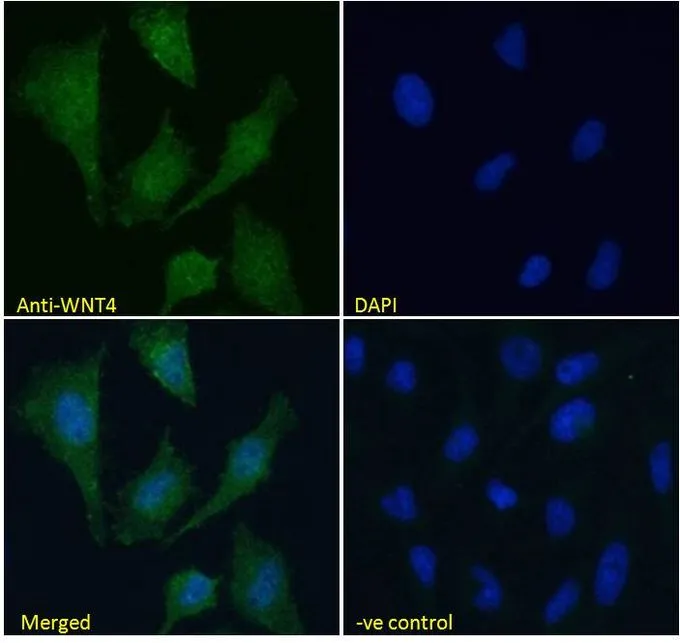
ICC/IF analysis of PFA fixed HeLa cells using GTX15699 WNT4 antibody, Internal. Green : Primary antibody Blue : DAPI Negative control : Unimmunized goat IgG Permeabilization : 0.15% Triton Dilution : 10μg/ml
Wnt4 antibody, Internal
GTX15699
ApplicationsImmunoFluorescence, Western Blot, ImmunoCytoChemistry
Product group Antibodies
ReactivityHuman
TargetWNT4
Overview
- SupplierGeneTex
- Product NameWnt4 antibody, Internal
- Delivery Days Customer7
- Application Supplier NoteWB: 1-3microg/ml. ICC/IF: 10microg/ml. *Optimal dilutions/concentrations should be determined by the researcher.Not tested in other applications.
- ApplicationsImmunoFluorescence, Western Blot, ImmunoCytoChemistry
- CertificationResearch Use Only
- ClonalityPolyclonal
- Concentration0.50 mg/ml
- ConjugateUnconjugated
- Gene ID54361
- Target nameWNT4
- Target descriptionWnt family member 4
- Target synonymsSERKAL, WNT-4, protein Wnt-4, wingless-type MMTV integration site family, member 4
- HostGoat
- IsotypeIgG
- Protein IDP56705
- Protein NameProtein Wnt-4
- Scientific DescriptionThe WNT gene family consists of structurally related genes which encode secreted signaling proteins. These proteins have been implicated in oncogenesis and in several developmental processes, including regulation of cell fate and patterning during embryogenesis. This gene is a member of the WNT gene family, and is the first signaling molecule shown to influence the sex-determination cascade. It encodes a protein which shows 98% amino acid identity to the Wnt4 protein of mouse and rat. This gene and a nuclear receptor known to antagonize the testis-determining factor play a concerted role in both the control of female development and the prevention of testes formation. This gene and another two family members, WNT2 and WNT7B, may be associated with abnormal proliferation in breast tissue. Mutations in this gene can result in Rokitansky-Kuster-Hauser syndrome and in SERKAL syndrome. [provided by RefSeq, Jul 2008]
- ReactivityHuman
- Storage Instruction-20°C or -80°C,2°C to 8°C
- UNSPSC41116161

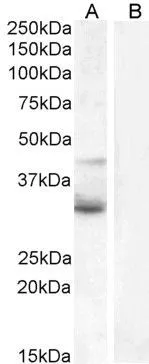
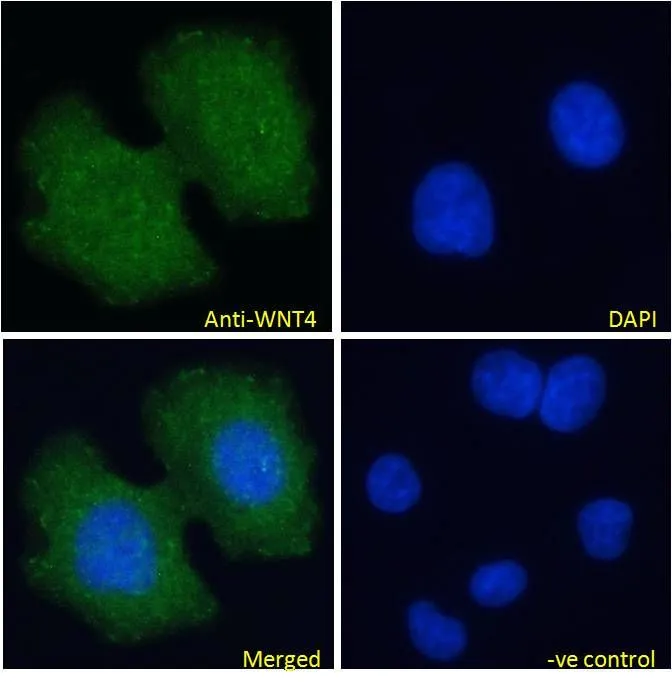
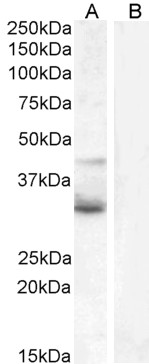

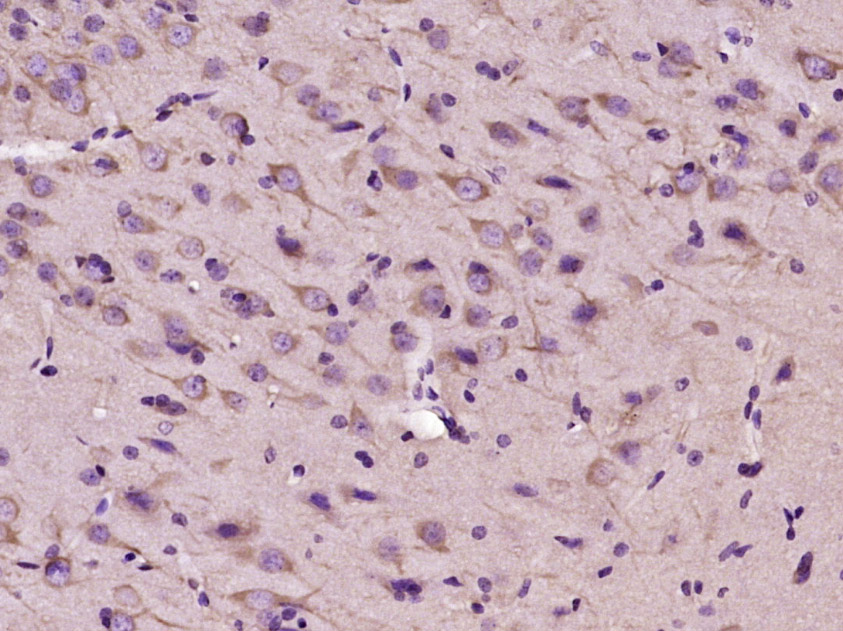

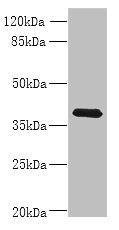

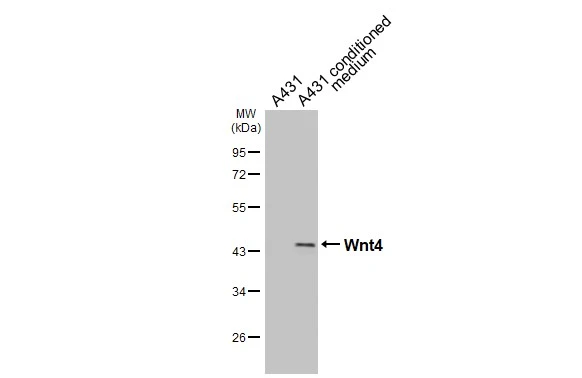

![Non-transfected (–) and transfected (+) 293T whole cell extracts were separated by 10% SDS-PAGE, and the membrane was blotted with Wnt4 antibody [HL1889] (GTX637638) diluted at 1:5000. The HRP-conjugated anti-rabbit IgG antibody (GTX213110-01) was used to detect the primary antibody, and the signal was developed with Trident ECL plus-Enhanced.](https://www.genetex.com/upload/website/prouct_img/normal/GTX637638/GTX637638_T-44837_20230421_WB_multiple_B_23042500_721.webp)